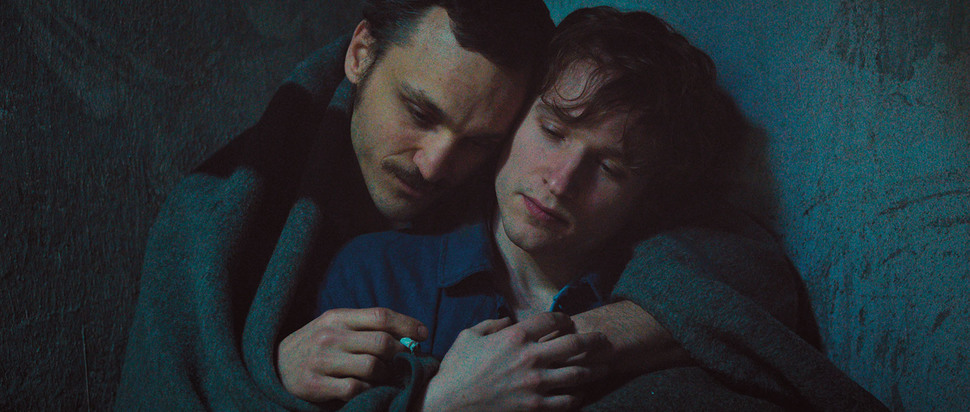Great Freedom
Franz Rogowski gives a soulful performance as a gay man who lives a recidivistic life in post-WWII Germany thanks to the country's brutal Paragraph 175 regulations
Great Freedom makes its metaphorical, almost ironic title clear from the start, diving immediately and brutally into the harsh realities for gay men after World War II. Hans (Rogowski) has been doing short prison sentences ever since his liberation from a Nazi concentration camp, stumbling into charges of obscenity with full knowledge of the consequences in a West Germany still governed by Paragraph 175. While director Sebastian Meise masterfully commands a nonlinear narrative – jumping between places and times for key thematic repetitions – the mundane pattern of his existence and the joyous, if fleeting, connections he forges remain coherent and continuous.
Rogowski, who excels in passion and its containment, is astonishing, carrying coiled and compounded traumas under Hans’ almost-nonchalant approach to an uncompromised life. Even when offscreen, his presence is charged. As Victor, Hans’ uneasy cellmate turned closeted ally, Georg Friedrich gives an equally compelling performance. As the pair meet in 1945, 1957, and 1969 – Hans returning on repeated short terms, Viktor in for the long haul – their relationship wears new unspoken layers that reframe interactions on every side of the morphing timeline.
Great Freedom eschews easy answers for Hans and his companions, however long they may stay. Instead, unchanging experiences in supposedly changing times are the backdrop on which tiny rebellions play out, finding infinite variety in ever-closing walls. Ultimately, the film proves peace is unsustainable in a world content to criminalise difference, its shattering final moments burning self-congratulatory progress to the ground.
Great Freedom is released 11 Mar by MUBI; certificate 18
